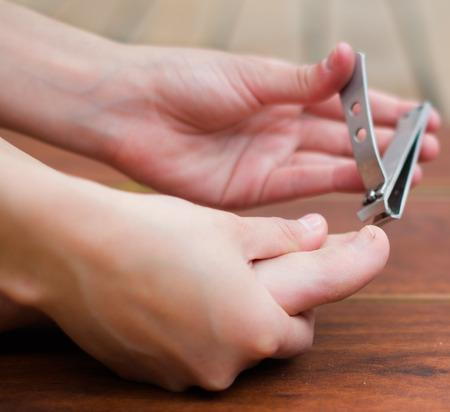An ingrown toenail happens when the edge of the nail grows into the toe’s soft skin instead of over it. It commonly affects the big toe. The condition can cause considerable pain, redness, swelling, and sometimes infection around the toe area if left untreated. It's a common complaint among the patients (both men and women) we see here at Stuto Foot Specialist Podiatry.
What are the common causes of ingrown toenails, and how can they be prevented?
- Ill-fitting shoes:
Shoes that are restrictive and too tight can push the toes together and force the nail to grow into the skin leading to ingrown toenails. Wear shoes with wide toe boxes to allow your toes to rest flat and provide them with enough room to wiggle. If the toe box is too small or narrow, it can force your toes into a cramped position and make you fall prey to ingrown toenails.
- Improper toenail trimming:
Perhaps one of the most common reasons for getting an ingrown nail is when you cut your nails too short. This can encourage the nail to penetrate the skin as it is growing back. Use a clipper and be sure to cut straight across.
- Foot Injuries:
Stubbing your toe against hard surfaces or repeated activity like kicking a soccer ball can sometimes cause an ingrown toenail to develop. Make sure you have the right gear and activity-specific shoes to keep you safe.
In some cases, it may be safe to treat an ingrown toenail at home by using over the counter medications to reduce pain and inflammation as directed by your foot doctor. However, patients with diabetes should not ignore the symptoms and should report any pain or irritation around the toenail to their podiatrists immediately.
If you think you have an ingrown toenail or are unsure about your foot condition, we suggest you visit our patient education library or schedule an appointment with our board-certified podiatrist Dr. Joseph Stuto at Stuto Foot Specialist Podiatry. Equipped with advanced technologies and dedicated staff, we treat a wide variety of conditions such as sports injuries, arthritis, toe deformities, nail fungus, flat feet, heel pain, bunions, and hammertoes. Visit or contact our two offices at Brooklyn Heights (718) 624-7537 and Brooklyn (718) 567-1403, New York.


